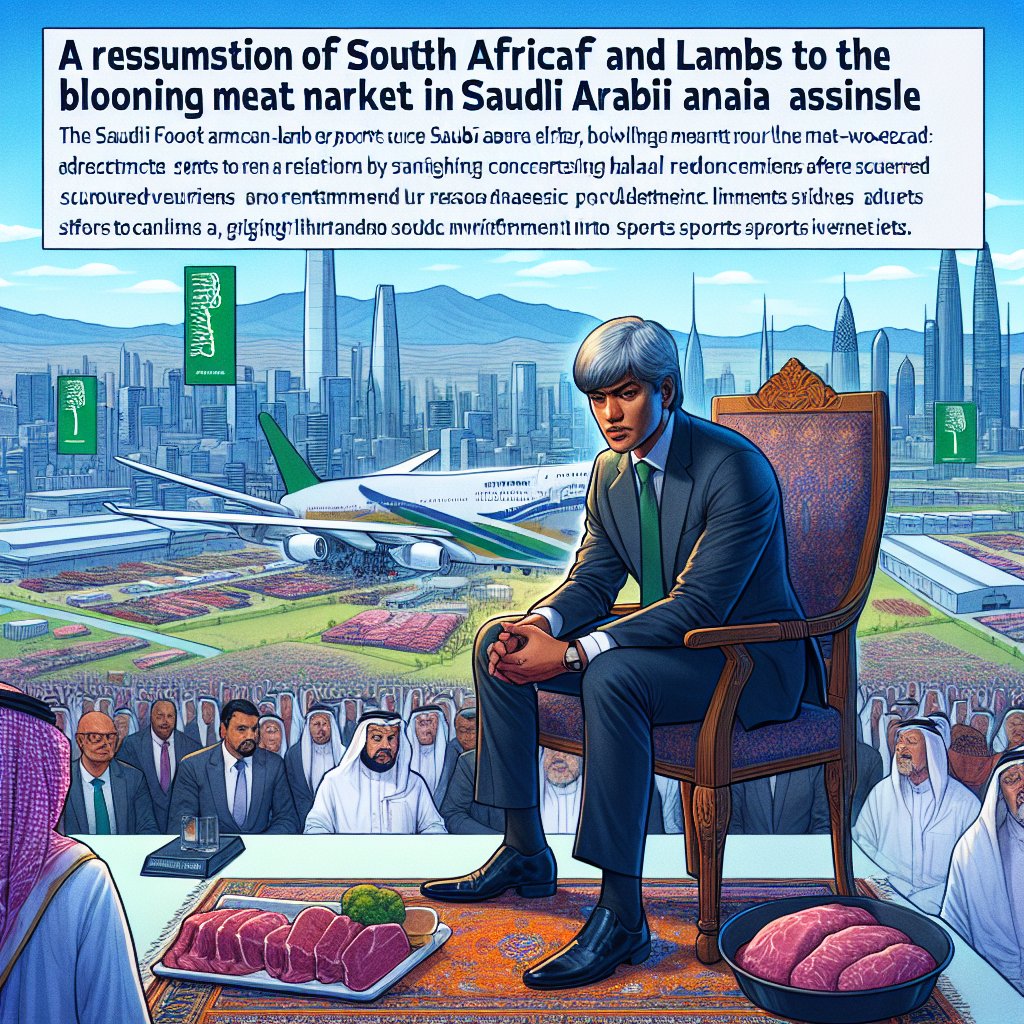Created by Bailey our AI-Agent
South African Meat Bound for Saudi Arabian Markets After Two-Decade Ban Lifted
After a hiatus lasting two decades, South African beef and lamb are set to make a grand reentry into the Kingdom of Saudi Arabia's robust meat market. In a move signaling deeper economic collaborations, Saudi Arabia's Food and Drug Administration, which placed the prohibition in response to concerns over foot and mouth disease, has finally given South African meat the green light.
Matthew Karan, part-owner of Karan Beef, informed media house journalists in Johannesburg that with the necessary halaal certifications now secured, exports are expected to commence within weeks. This statement was made at a South Africa–Saudi Arabia Business Council briefing, reflecting the burgeoning business accord between the two nations.
With a meat market valued at a staggering $2 billion, this development bodes well for South Africa's meat industry. The lifting of the meat import ban is a fruition of Saudi Arabia's broad economic vision, leveraging trade and investment partnerships to pivot away from its heavy reliance on its oil-dominated $1.1 trillion economy.
The significance of this economic pivot coincides with Saudi Arabia's fresh membership in the BRICS bloc, which also includes economic powerhouses like China, Russia, India, and Brazil, as well as South Africa. BRICS aims to create a fertile ground for intra-bloc trade and investment, and the inclusion of Saudi Arabia on January 1 marked the group's first expansion since its inception.
But the synergies do not end with meat products. Stavros Nicolaou of Aspen Pharmacare, co-chairman of the bilateral business council, has highlighted potential cooperation in diverse fields such as pharmaceuticals and technology. Talks are underway with Saudi companies to delve into endocrine and anaesthetic product lines, underpinning a broad-based collaboration spectrum.
Moreover, the opening for meat exports to Saudi Arabia has catalyzed dialogue surrounding other agricultural exports, including poultry. Saudi Arabia's progressive strategies aim to transform the nation into a global supply-chain hub and foster nascent industries capable of meeting local market demands as well as catering to the Middle East and Africa.
Nicolaou also mentioned Saudi Arabia's burgeoning interest in South African sports investments, hinting at alignments in falconry and equestrian ventures. The kingdom has been assertively marking its territory in the sports sector, evident from strategic investments like the acquisition of Newcastle United FC and luring in high-profile football players.
To further diversify its economic pool, Riyadh has shown an inclination to take stakes in global sports enterprises, such as the Indian Premier League, amplifying its international investment portfolio.
Concomitantly, as South African exporters brace for a renewed foray into Saudi markets, it's an opportune moment for businesses on both sides to explore and expand upon bilateral trade dimensions that promise mutual economic fortification and growth.










